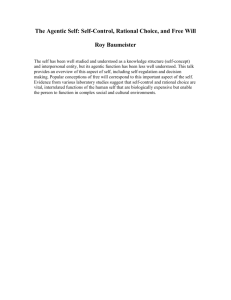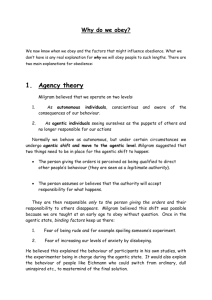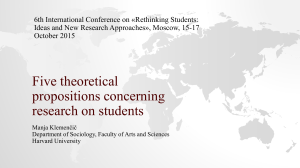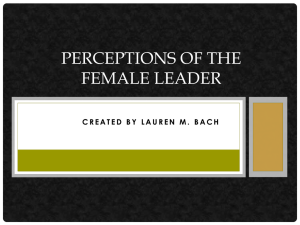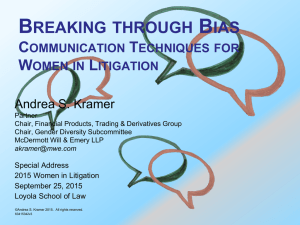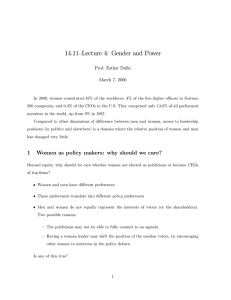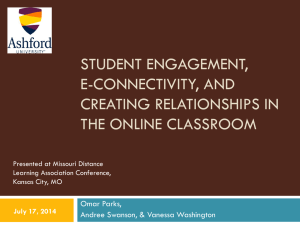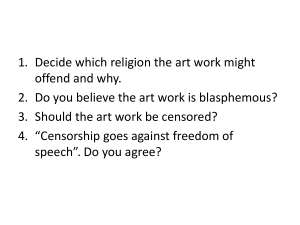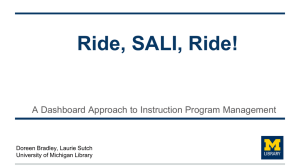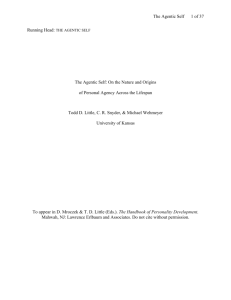Agency and Engagement in the College Classroom
advertisement
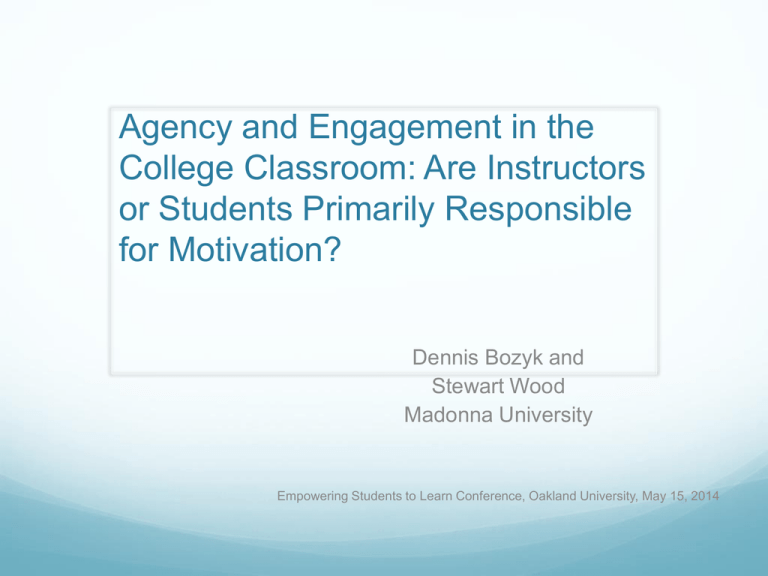
Agency and Engagement in the College Classroom: Are Instructors or Students Primarily Responsible for Motivation? Dennis Bozyk and Stewart Wood Madonna University Empowering Students to Learn Conference, Oakland University, May 15, 2014 Effective College Instructors … acknowledge that they have a responsibility to teach in ways that inspire a liking for course content; communicate their love of the field and subject matter; employ strategies that engage and encourage students to study hard, understand and persist in the face of obstacles Therefore, instructors can reasonably be judged not only in terms of their students’ course achievement but also with respect to their students’ levels of engagement and motivation to achieve in the content area. Agentic Engagement Link to Sameroff’s Transactional Model: Children and contexts shape each other. Agentic engagement is defined as “Students’ constructive contribution into the flow of the instruction they receive” (Reeves & Tseng, 2011). Scale Items for the AE Construct During class, I ask questions. I tell my teacher what I like and what I don’t like. I let my teacher know what I’m interested in. During class, I express my preferences and opinions. I offer suggestions about how to make the class better. Overview of Achievement Goals Goals are the purposes that students see in doing schoolwork. Learners constantly ask themselves: ‘Why am I doing this?’ Mastery (Learning) Mastery-Avoid Characteristics: Mastery focus Deep Processing Intrinsic interest Linked to Flow (Csikszentmihaly) Academic risks Characteristics: Avoid misunderstanding class material Performance-Approach Performance-Avoid Characteristics: Competitive focus Utilitarian view of learning Shallow-processing Academic short-cuts Extrinsic focus Characteristics: Avoid academic risks Low self-efficacy Choose easy tasks Implications and Takeaways The construct of agentic engagement reflects a paradigm shift. Students come with a mental model of a university course that does not include them in its shaping. Students create motivationally supportive learning environments for themselves. The vital importance of the first day! If students are to become agentically-engaged, the conditions that facilitate those qualities must be present from day one. What strategies might an instructor employ in the first class to support agentic engagement? This conference is focused on student empowerment. Is agentic engagement a form of empowerment? Key Resources Agentic Engagement: Reeve, J. (2013). How students create motivationally supportive learning environments for themselves. The concept of agentic engagement. Journal of Educational Psychology, 105(3), 579-595. Reeve, J. (2013). Students’ classroom engagement produces longitudinal changes in classroom motivation. Online First Publication, November 11, 2013. Goal Theory: Elliot, A. J. (2005). A conceptual history of the achievement goal construct. In A. J. Elliot & C. S. Dweck (Eds.) Handbook of Competence and Motivation (pp. 5272). New York, New York: The Guilford Press. Pintrich, P. R., & Schunk, D. (2002). Motivation in education: Theory, research and applications (2nd Ed.). Englewood Cliffs, NJ: Merrill PrenticeHall. Dennis Bozyk: dbozyk@madonna.edu Stewart Wood: swood@madonna.edu
